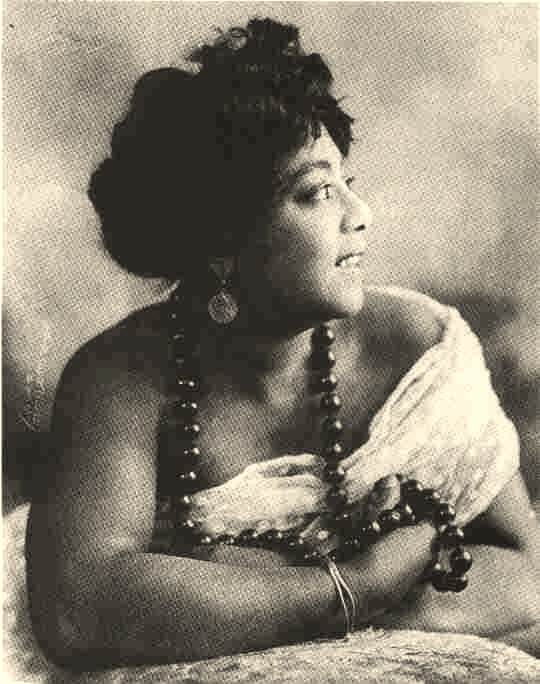
Classic Blues 1
Large cities were the place to be recognized if you had aspirations of being a blues singer. The term Classic blues, otherwise known as City blues, is associated with a style of blues singing that "came into existence during the 1920s and which dominated to the mid-1930s" (Barkley 2003, 100). Barkley continues to describe the Classic blues music of this time as:
…a by-product of the great migration of Blacks out of the rural south into the cities and were initially used as a form of entertainment in minstrel and vaudeville shows. In this style, two or more instruments accompany the blues singer, and the emphasis moves from unaccompanied guitar to piano. In order to coordinate the efforts of the ensemble of musicians, these blues use the standardized twelve-bar form and harmonic progression. Female singers dominate this style, and examples of musicians singing in the classic blues style include Ma Rainey, Bessie Smith, and Edith Johnson.
(Barkley 2003, 100)
Our knowledge of the sounds and forms of early blues is based mainly on recordings, but the regular commercial recording of blues did not begin until 1920. By that time, the music had been in circulation for a score of years. As her manager, the pianist Perry Bradford, describes, Mamie Smith was the first African American blues singer on record. The commercial success of her "Crazy Blues," recorded for Okeh with a jazz accompaniment, led various companies to record Rosa Henderson, Lizzie Miles, Trixie Smith , and many other women Classic blues' singers, whose issued titles followed rapidly. Like most women singers who dominated the recorded blues for several years, Mamie Smith was a professional stage performer who entertained in vaudeville shows (Oliver 2012).






